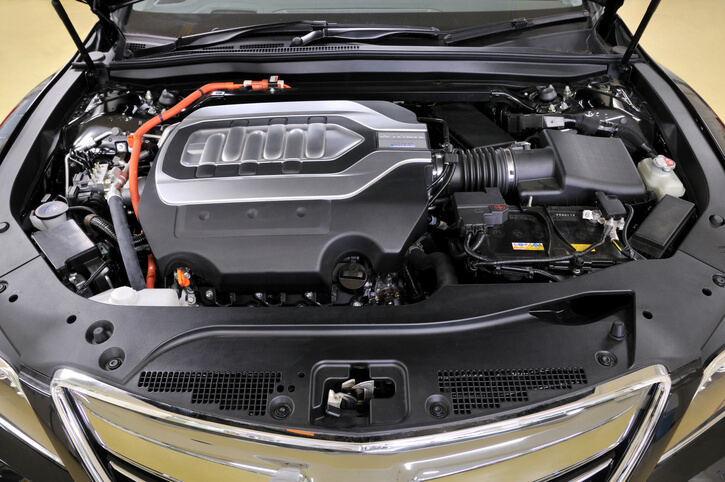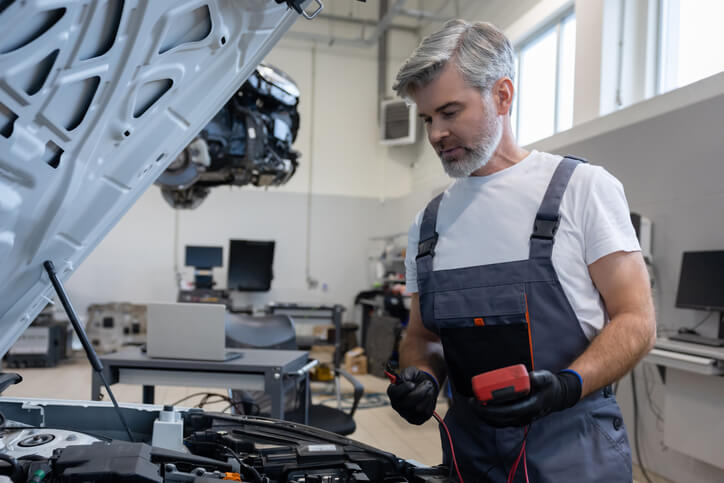What to Expect When Servicing Vehicles with Mild Hybrid Systems (MHEVs)
With more drivers opting for fuel-efficient vehicles, Mild Hybrid Electric Vehicles (MHEVs) are becoming increasingly common in automotive shops. At ATC Toronto, students enrolled in auto mechanic training are introduced to the systems and service techniques unique to mild hybrid vehicles.
Unlike full hybrids or plug-in electric vehicles, MHEVs use a small electric motor and battery to support the engine, not replace it. But make no mistake: servicing them still requires updated knowledge, proper precautions, and specialized training.
Here’s what you can expect when working on one of these evolving machines and how your training helps you handle them with confidence.
What Makes an MHEV Different?
MHEVs use a 48-volt battery system and an integrated starter-generator (ISG) to assist the gasoline engine during startup, acceleration, and stop-start driving. They can’t operate on electricity alone, but they improve efficiency, reduce emissions, and allow for regenerative braking.
The most important difference for mechanics? MHEVs have both traditional combustion components and high-voltage systems. That means servicing them requires careful planning, proper isolation procedures, and hybrid-specific tools.
Common MHEV Service Scenarios
When working on an MHEV, you’ll likely perform both standard and hybrid-specific tasks. These may include:
- Diagnosing powertrain performance issues
- Inspecting and replacing 48V batteries
- Servicing regenerative braking systems
- Testing electric motor assistance functionality
- Performing standard oil, brake, and tire maintenance
Through hands-on practice in ATC Toronto courses, students learn how to recognize the differences between mild hybrids and conventional vehicles, so they can avoid mistakes and work safely.

Important Safety Protocols You’ll Learn
While MHEVs don’t have high-voltage batteries like full EVs, their 48V systems still carry risk. That’s why safety is a top priority in auto mechanic school.
At ATC Toronto, you’ll learn:
- How to properly disconnect and isolate the 48V battery system
- When to wear high-voltage safety gloves and PPE
- How to use non-conductive tools during inspection or removal
- Where to locate MHEV-specific warning labels and disconnect points
Ignoring these basics can result in injury or damage to the vehicle. Training ensures you know how to handle these systems before stepping into a professional shop.

Tools and Equipment You’ll Use in Auto Mechanic Training
MHEVs don’t require a complete overhaul of the tool chest, but certain hybrid-friendly tools are becoming standard in today’s shops. During auto mechanic training, you’ll get to work with:
- Insulated hand tools for electrical work
- Hybrid battery testers and scan tools
- Regenerative brake testing devices
- Multimeters with hybrid vehicle compatibility
Familiarity with these tools means you’ll hit the ground running in a shop environment, prepared to work on both gas and electrified powertrains.
Why It Matters to Your Future Career
As more automakers introduce mild hybrids, the demand for technicians who can confidently service them is growing. Knowing how to diagnose and repair MHEVs adds value to your resume and shows employers that you’re ready to handle modern challenges.
Through ATC Toronto courses, students get early exposure to hybrid concepts, including mild hybrids, so they can adapt quickly to a changing industry.
Learning to service advanced vehicle systems like MHEVs can seem daunting but with the right training, students gain the confidence they need. Meredith Orr, a former Automotive Training student, shares her experience:
“The staff exhibits extreme efforts to help students and are very friendly. The course I’m taking is taught by Ernest Mashingaidze. He is very informative and willing to answer any questions. There are no bad questions. I feel that this course will prepare me for a number of jobs in the field. I would highly recommend this school to anyone.”
Do you want to explore a wide variety of ATC Toronto courses?
Contact us for more information.


